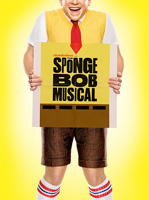
ON THE BEAT | ‘REGINA’
Kennedy Center takes a noble stab at Blitzstein’s tricky Regina
By Brian Kellow
Published: May 2005 To Commemorate MARC BLITZSTEIN’s centenary, the Kennedy Center presented a semi-staged-plus concert version of Regina, Blitzstein’s 1949 opera based on Lillian Hellman’s The Little Foxes. The performance took place in mid-March, as part of the Center’s series A New America: the 1940s and the Arts. It’s difficult for most of us to warm up to this strangely uneven opera, in which much of the most potent dialogue is delivered without musical accompaniment. Regina usually comes to life only fitfully, but the Kennedy Center’s presentation made the best case for the work I have experienced. Not that there weren't problems. Because the Kennedy Center’s concert hall is of airport-like proportions, there was little chance for dramatic intimacy, especially with the orchestra on floor level, between the audience and performers, and the action unfolding on an elevated platform. But the orchestra was under the expert leadership of STEVEN MERCURIO, who made all the score’s big moments count, particularly the rain quartet and Birdie’s “Lionnet” aria, both beautifully transparent and full of instrumental detail one often doesn't hear. The major roles were cast from strength. PATTI LUPONE, in a major departure, was a sharp-edged yet all-too-human Regina; one felt her deep frustration at having spent a lifetime settling for less than she longed for. The part had been lowered for her - no climactic high C in “I’ll be WAAAAAAIIIIIITING!” - but she was in good voice and made every word count. As her two mercenary brothers, Ben and Oscar, TIMOTHY NOBLE and TIMOTHY NOLEN add immeasurably to the performance, while SHERYL WOODS’s sad, broken Birdie and MARIETTA SMPSON’s strong, watchful Addie could hardly have been improved upon.
There were also two younger finds: MARK LEDBETTER, a musical-theater actor, made an indelible Leo, showing a superb grasp of the role’s trickier rhythmic sections; LEENA CHOPRA, a masters’ degree candidate at Julliard, displayed a voice of considerable power and beauty as Regina’s young daughter, Alexandra, who gradually discovers her own steely qualities. (Unfortunately, she was almost unintelligible in the upper register.) My only reservation came with the casting of EUGENE GALVIN, stiff and awkward as Marshall, and SHULER HENSLEY, who never really suggested Horace Gidden's physical frailty
I’m not in the habit of reviewing reviewers by why would The Washington Post’s theater critic, PETER MARKS, in his review of Regina, express his wish that “musical theater of the ’40s be represented in this wide-ranging festival by something more accessible? Something, at the very least, that would inspire more applause than head scratching” Well, if you don’t like Regina, you don't like it. It’s an odd piece, and I would never go to the mat over it, but it's nothing if not accessible. Marks also says that he found himself wishing LuPone would “break into a bit of Cole Porter, or something by the Gershwins.” This is what passes for responsible criticism at one of our leading newspapers?

